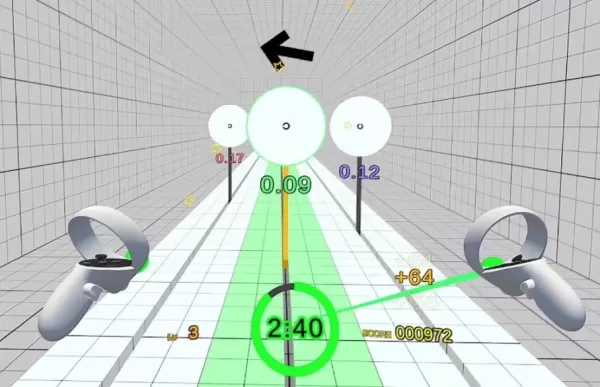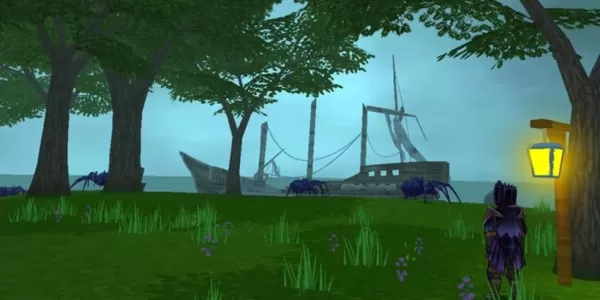In an era dominated by smartphones, gaming consoles, and computers, accumulating excessive screen time has become all too common. We’re all aware this isn’t ideal for our eyes, especially after experiencing the fatigue that follows hours of gaming or endlessly scrolling through content. Constant screen exposure tires the ciliary muscles in your eyes, which control focus, potentially leading to nearsightedness. But what if the solution to better vision was… more gaming?
A recent study from researchers at Japan’s Kwansei Gakuin University introduced a VR game designed to enhance eyesight. Though more investigation is necessary, this game shows promise as a tool to help individuals with basic myopia, or nearsightedness, strengthen their vision.

The game itself is a straightforward target shooter, developed using Unity for the Meta Quest 2. It includes three lanes, each with a circular target on a stick. By pressing the trigger button on the controller, players activate a virtual laser beam. When aimed at a lane, this laser highlights both the lane and target, entering “aim” mode. To score a hit, players must move the controller stick in the direction shown by a small Landolt C—a black ring with a gap, commonly used in Japanese vision tests—located in the center of the target.
This VR experience was engineered to exercise the eye muscles, as players alternate their gaze between targets at varying distances and concentrate on the Landolt C to identify the gap's location. After each session, players see an arcade-style results screen displaying their hits, misses, combo streaks, and whether they achieved a new high score (some test subjects became quite competitive).
Findings indicated that over the six-week study, all participants experienced improved vision. Particularly for those with severe myopia, more frequent gameplay correlated with greater vision gains.
Still, since the study involved only 10 young adults aged 22–36, more extensive research is required to assess whether such a VR game could eventually treat near-sightedness. As stated in the Japanese research paper, the team intends to conduct additional experiments to verify the game’s effectiveness.








